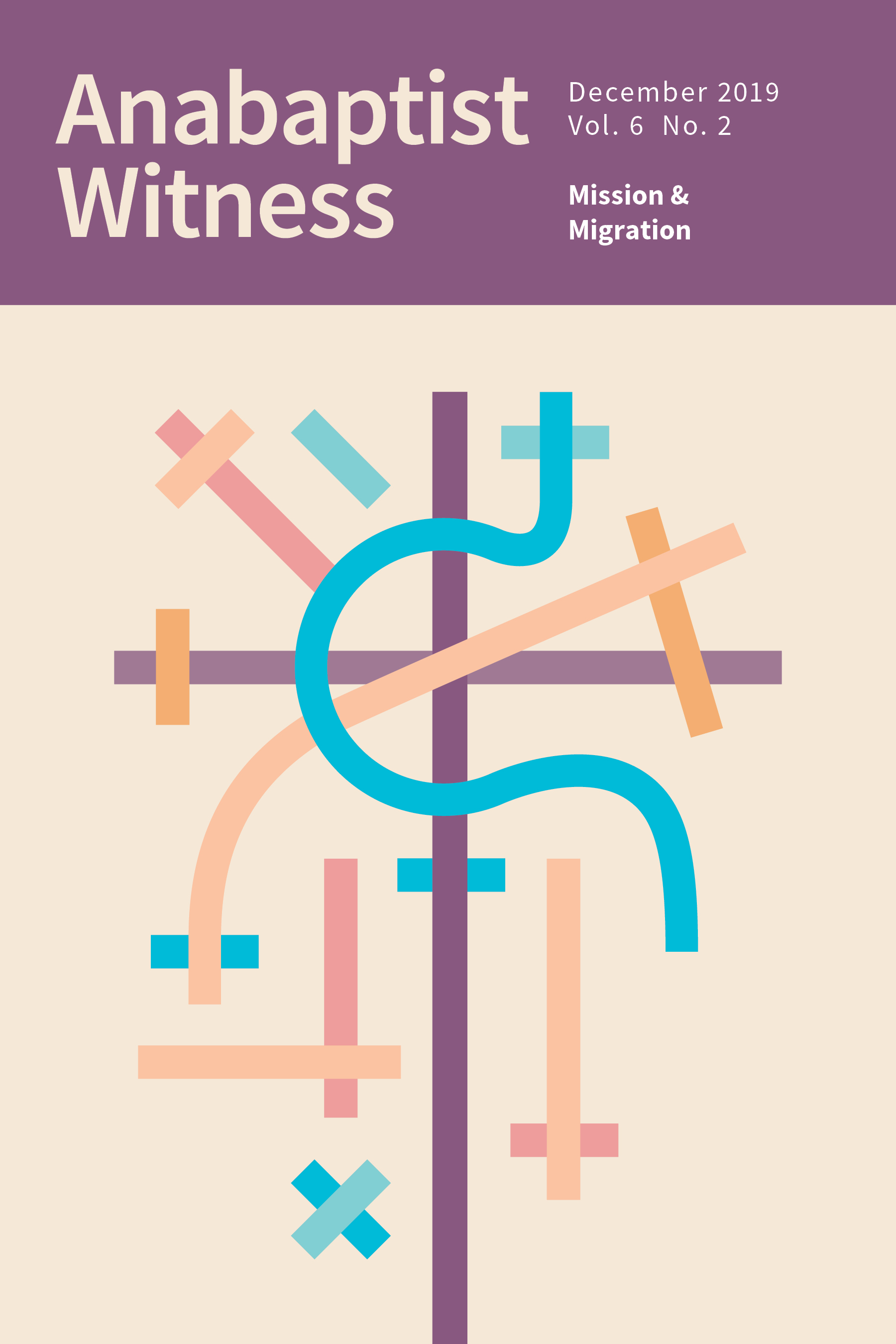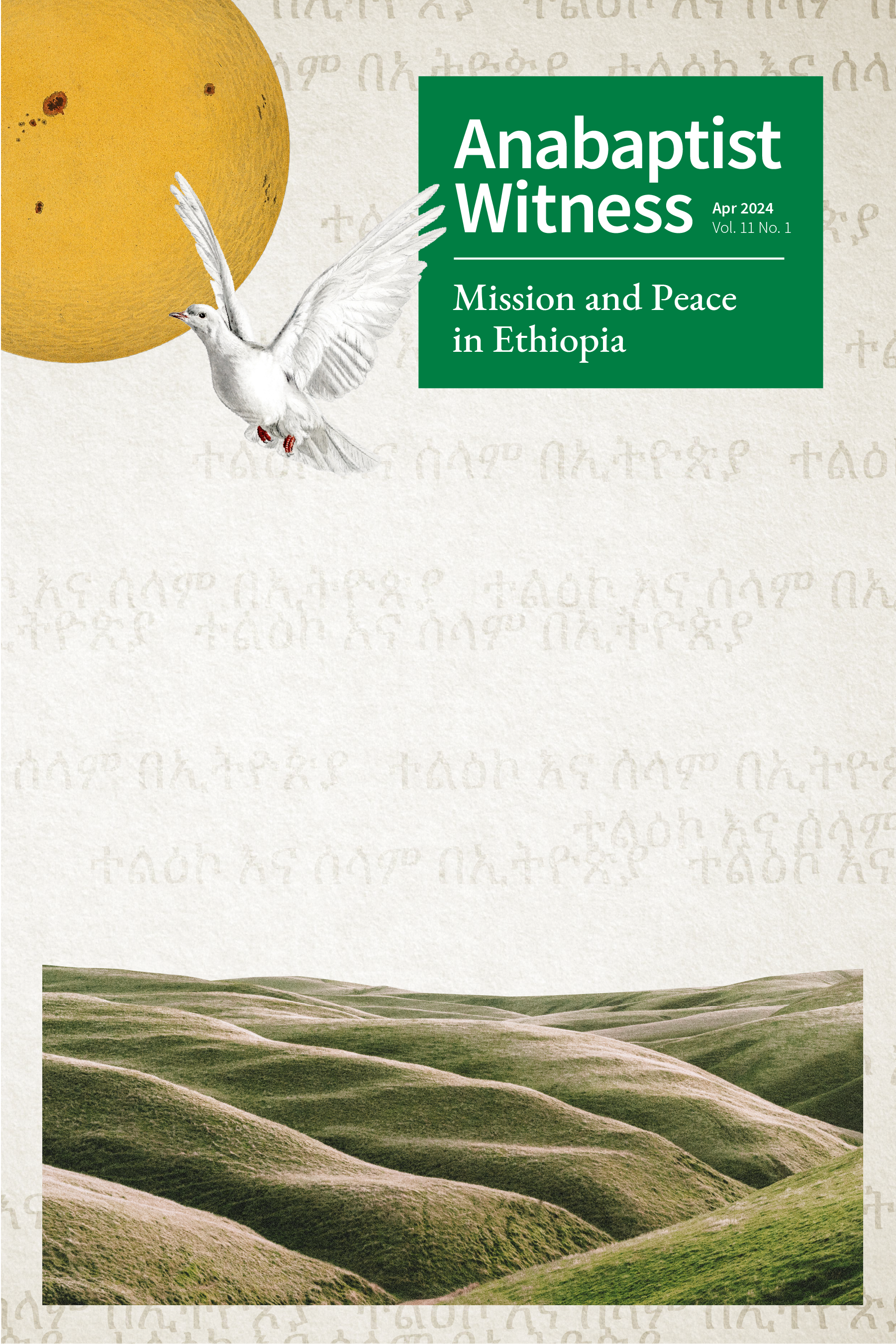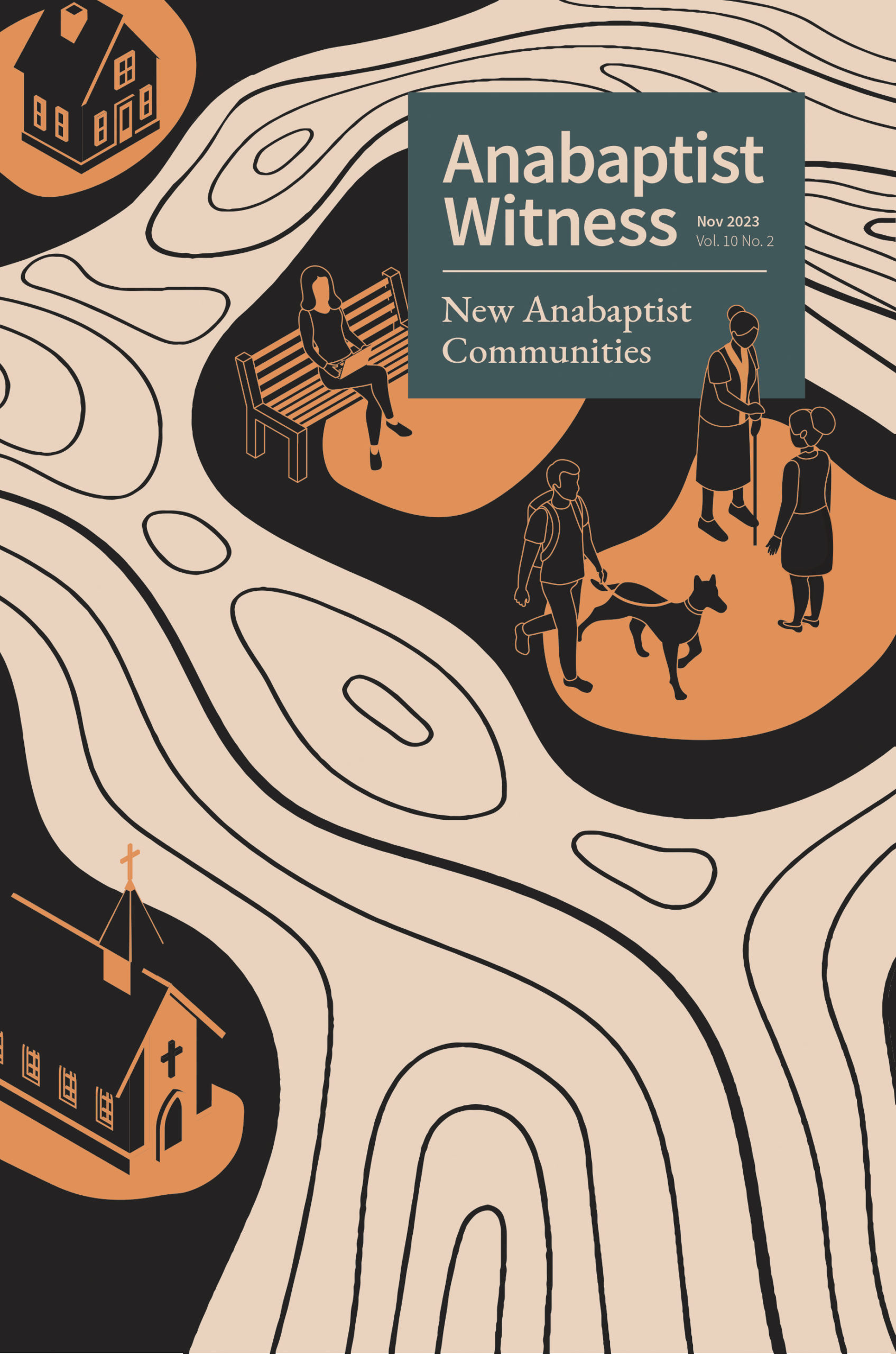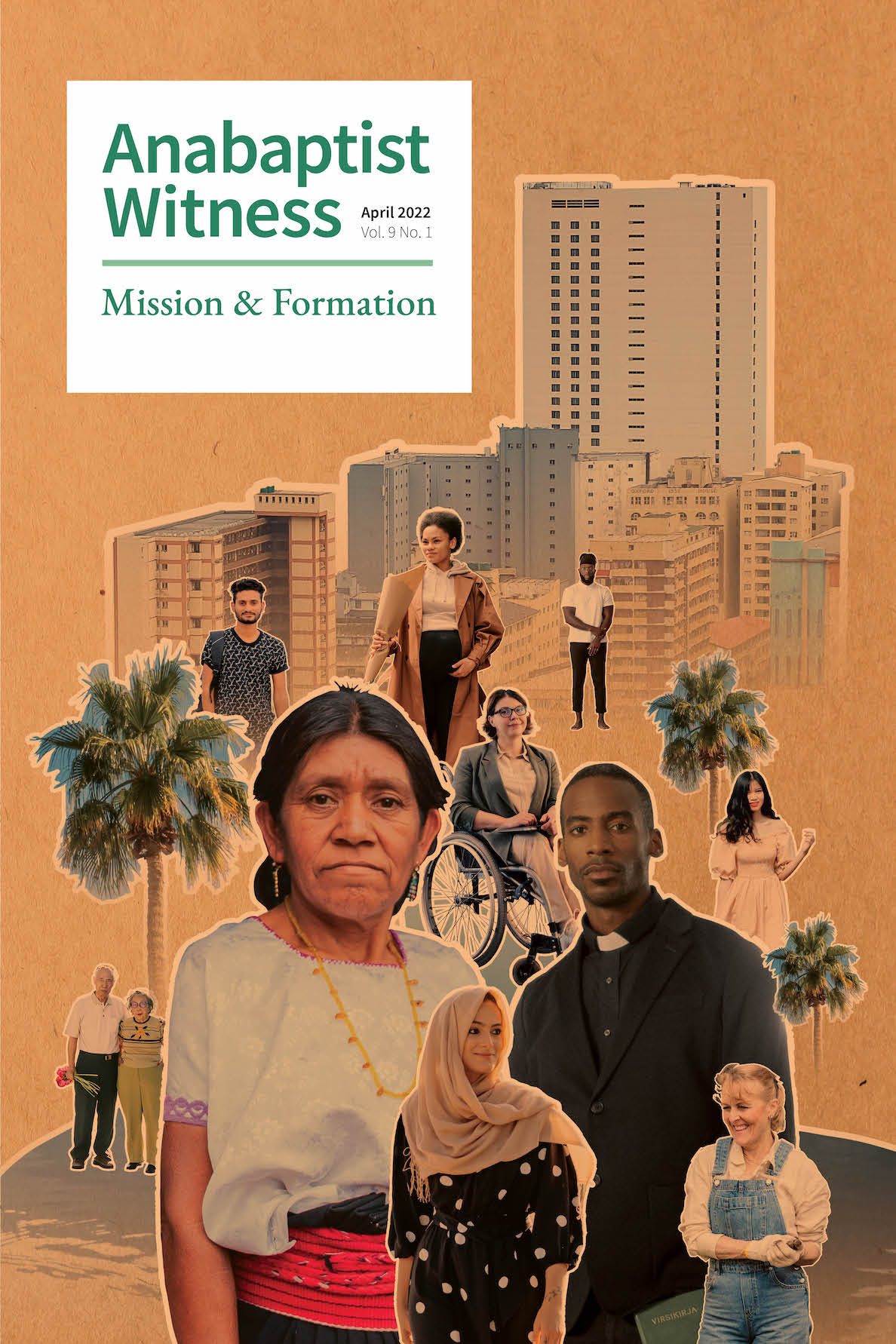Mission & Migration
About This Issue Download this issue
Mission & Migration
To talk about migration is to talk about identity, both individual identity and the collective identities of communities of faith. Forced migration characterized and shaped the early Anabaptist movement—a movement created, in part, to ensure religious freedom and the ability to practice faith as separate communities. This pattern of movement, originally meant to support a closed community, has resulted in a migration of theology, growing missions movements, and the spread of Anabaptism across the world.
In this issue of Anabaptist Witness, authors explore ways in which migration has shaped identity as well as how identity has shaped migration and ways of being and belief, both in the past and the present. They also offer reflections on, and understandings from different perspectives around the world of, who we are as faith communities of migrants and people on the move.
Jason Barnhart examines the theme of migration in Brethren history. He takes us through the poems of Alexander Mack, Jr., and the way Mack’s writings, which are influenced by Pietist and Anabaptist thought, capture the inward and outward pilgrimage of colonial Brethren in the new world. Bryan Rafael Falcón’s poem about visiting the US/Mexico border wall in Arizona and Sonora in 2018 provides a contemporary contrast to the themes explored in Barnhart’s paper. Falcón’s poem illuminates how the dynamics of exclusion and inclusion, of borders and crossings, of longing and disappearance, continue to shape the way we view each other and create art together.
Peter Wigginton and Robert and Anne Thiessen address the challenges of shaping our theology and acting accordingly in response to migration. Wigginton—reflecting on the ways he and his wife, Delicia, support the Mennonite Church in Quito as they receive Venezuelan migrants—shares about a needed theology of grieving in response to the situations of forced displacement. Reflection on the experience of displacement, he writes, always obliges us to pass through mourning toward hope. The Thiessens draw on their experiences in southern Mexico to expand our understanding of migration and mission. Reflecting on the failure of external missionary movements to support healthy, incarnational faith communities, they propose several news ways to think about migrants and the mission field.
Our Anabaptist communities are constantly being invited to make decisions about how to respond to current migration movements. In “Compasión con el extranjero” (Compassion for the Foreigner), Rebeca González invites us to consider responses to migration formed from her reading of the Bible as a witness of asylum seekers’ experiences and stories during her time at the hospitality ministry of Casa de Paz in Aurora, Colorado. González also invites us to consider both the root causes of migration today in parallel to historical Anabaptist migrations and the impact of those migrations for the early Anabaptist communities. She notes that today, as in the biblical text, migration is both voluntary and involuntary in that it is a movement toward abundance, empire, and possibilities of life. She argues that Anabaptists, pushed by political, social, economic, and religious persecution, learned to live in intentional communities where they could share, dialogue, and cooperate with each other.
How do the experiences of the people of Israel as both host and “stranger” (ger) inform our theology of migration today? Yamil Acevedo takes us into a dialogue among Old Testament scholars and offers suggestions on how our missional identity can be shaped and informed by the Old Testament and the experiences of the people of God. Acevedo asserts that an honest engagement with those experiences “will inevitably place us in a position that returns dignity to the other and at the same time preserves our own.” In addition, he argues that this will “incline us toward hope while we eagerly await the redemption of all things as a missionary community with a profound confrontation ethic.”
Jaime Prieto Valladares, in an article written for Mennonite World Conference’s 2027 celebrations, invites us to consider what he calls “decisive questions” for the church in this age of migration. In a Latin American rhythmical style of citing music, poetry, and historical events in Anabaptist history, Prieto walks us through our Anabaptist migration journey, with a focus in Latin America. He asks crucial questions such as, what will the church contribute to offer a better future for migrants and their children? Would it be possible to imitate Jesus in the journey with migrants? Are we capable of gathering the best of our Anabaptist tradition to recreate a utopia of solidarity? Will we allow the anointing of the Holy Spirit to inspire us to create and sing songs that will allow migrant boys and girls to dream in peace? We hope that this issue of Anabaptist Witness will raise these and related questions for our readers.
Saulo Padilla (Mennonite Central Committee U.S.) and
Anna Vogt (Mennonite Central Committee Canada, Ottawa Office), guest editors





